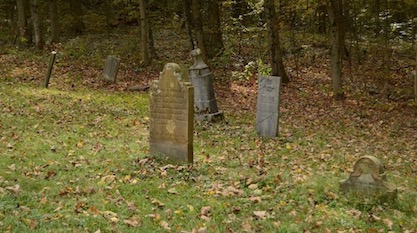 Culture & Ethics
Culture & Ethics
Human Dignity — Past Death


Does the manner in which we treat our dead reflect how we view ourselves? I think it does, which is why it is news that the Washington legislature is on the verge of legalizing human composting as a means of final disposition. From the Daily News story:
In the process — also called “recomposition,” — bodies are placed in a vessel which speeds up decomposition and turned into a soil which can be returned to families.
The family could then use the soil that was once their loved one in which to plant a tree or to use as dirt in a flower pot, whatever.
Washington will also permit our remains to be liquified.
The proposed Washington bill would also allow alkaline hydrolysis — where bodies are dissolved in water and potassium hydroxide in a pressurized chamber until only bone and a sterilized liquid remains…
If passed, the bill would make Washington the 17th state to allow alkaline hydrolysis.
Liquid human remains are not flushed down toilets exactly, but they are poured into sewers.
What Does It Matter?
On one hand, what does it matter? Ashes to ashes, dust to dust, dirt to dirt, sewage to sewage.
On the other hand, these trends cause disquiet. Is that just because they are new, or is something else going on? I say, it is the latter.
This post is all my good friend Joseph Bottum’s fault. He got me thinking about this question several years ago with an essay published in First Things. From“Death and Politics”:
The modern failure of funerals serves as both a cause and a symptom of the shattering of culture, first into the nuclear family, then into atomized individuals, and at last into nothingness — with, for instance, the increasing use of “anonymous death,” a European innovation now beginning to appear in America, where the dead are abandoned without ceremony in deliberately unmarked graves, or their corpses are cremated with the ashes spread across large and indifferent spaces.
Bottum is saying that with the loss of graves and urn niches, we have deprived ourselves of an important means of connecting with the entire sweep of humanity, not just the past, but also the future.
A Fascination with Historical Graveyards
In this regard, think about how many of us are fascinated by historical graveyards because it connects us with our forebears. I have experienced this in a personal way. My maternal grandfather died young in 1921. He lived his last years in Rhode Island. I was raised in California. Being able to visit his grave connected me concretely with my roots. Had he been disposed of as just dirt, I would have been unable to make that connection.
Humans composted or disposed as sewage also is a symptom of modernity’s reduced respect for the intrinsic importance of being human. We treat cadavers with respect because they were human beings in ways we don’t treat animal bodies. For example, we cover people who have just died to preserve privacy – even though the dead are quite beyond awareness of being exposed to view.
Pomp and Expense
We bury our loved ones, sometimes with great pomp and at great expense. Cremation too is usually carried out with great respect. People place the urns of loved ones in cemetery niches, in home shrines, or as another example, respectfully scattered at sea or in rose gardens. (Some also cremate beloved pets and keep the ashes, but that doesn’t change the essential point.)
These acts are only logical if we believe that the lives of humans matter and that importance continues after they cease. In contrast, it seems to me that having ourselves turned into dirt — or worse — reflects at least an implied philosophical view that it doesn’t ultimately matter that we ever existed.
All We Are Is Carbon Molecules?
These new means of disposition also reflect a profoundly anti-metaphysical impetus that unhealthily (in my view) increasingly permeates society. Religionists believe that there is more to come after death, and that how we live has a direct impact on that future existence. This is reflected in their funerals and other death memorials.
Materialists insist that, in the end, all we are is carbon molecules, which implies that how we lived has no ultimate meaning once we are dead. Turning human bodies into so much sewage certainly would seem to reflect that view.
I know that some of this is a reaction against the high cost of funerals. And for some, it is a means of making a political statement about the environment. But I worry: If we ever get to the point that our remains are just so much waste material, if our disposition practices reflect a widespread belief that we are merely carbon in animated form, if we really see ourselves as unworthy of anything greater than being composted once that animation ceases, we will treat one another accordingly even before our ends actually come.
Photo credit: Madison Grooms via Unsplash.
Cross-posted at The Corner.
